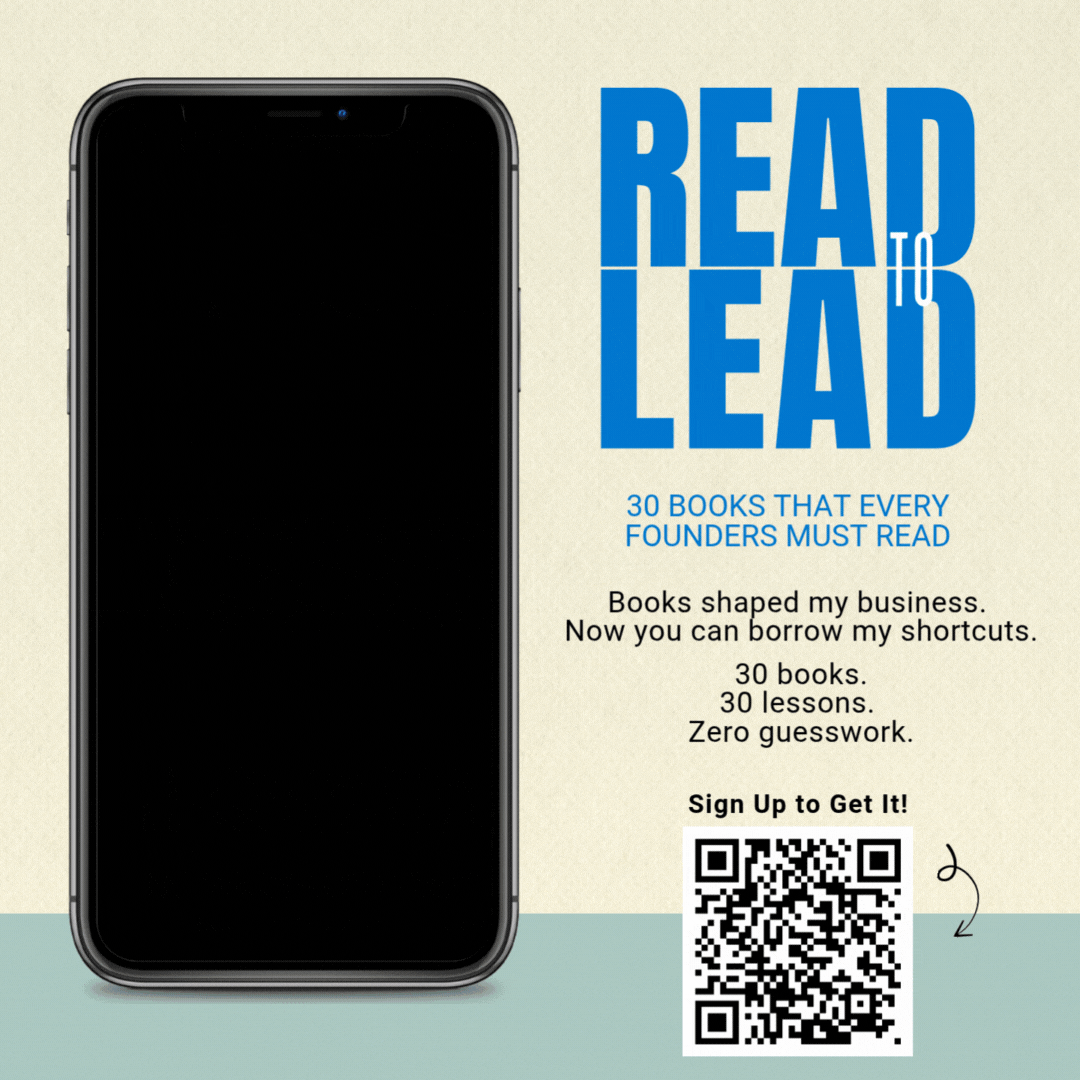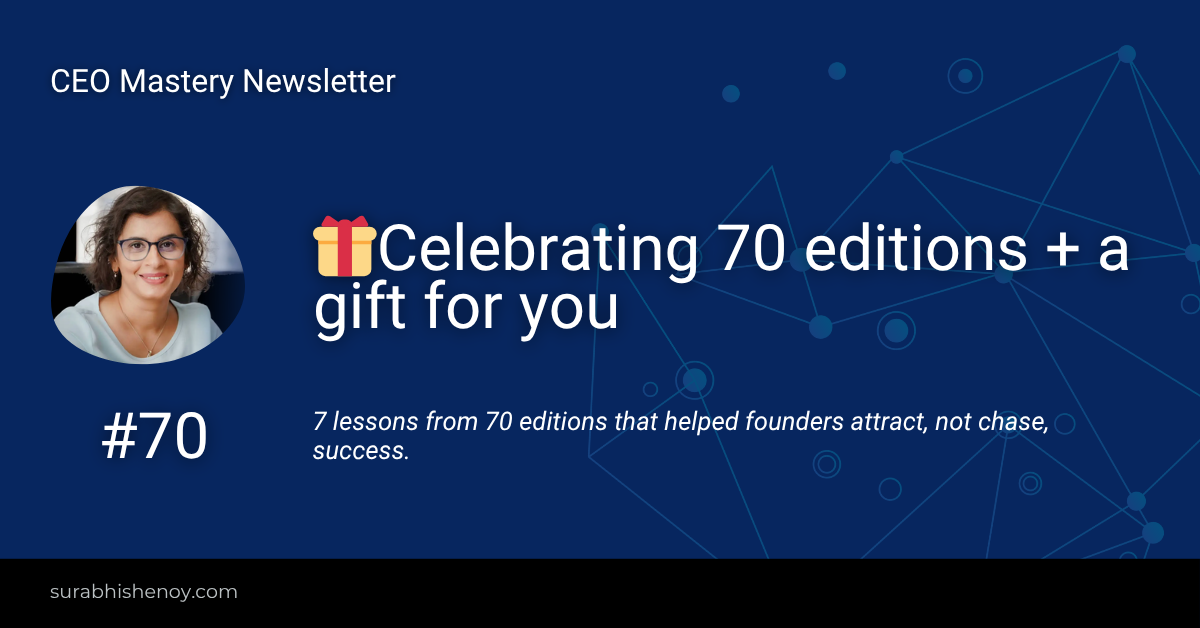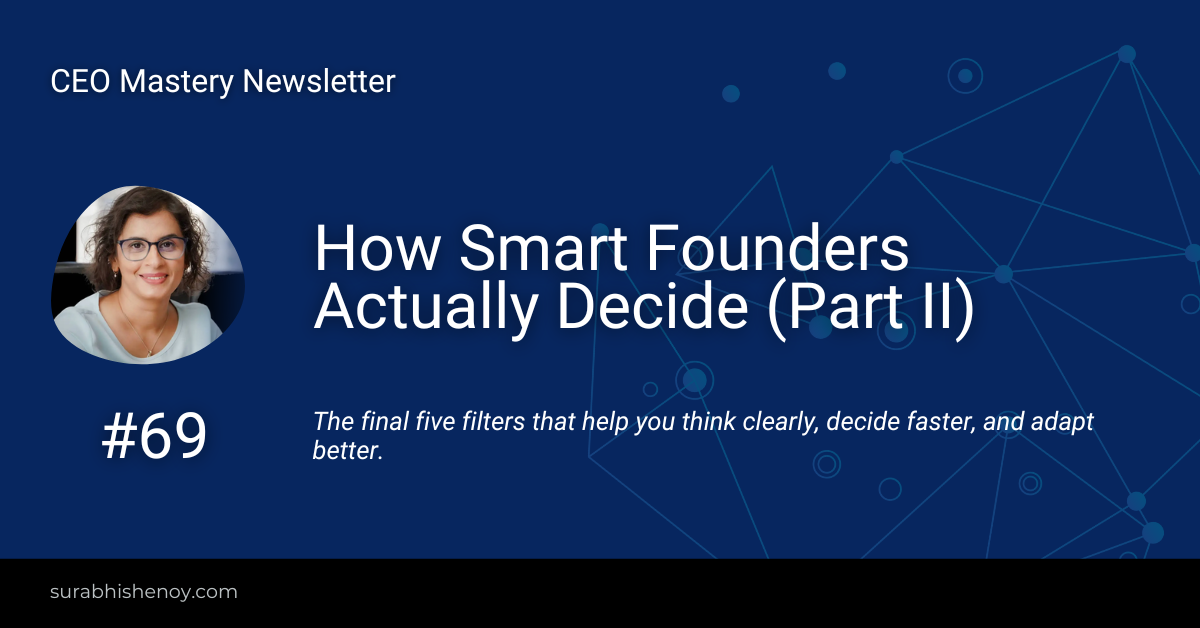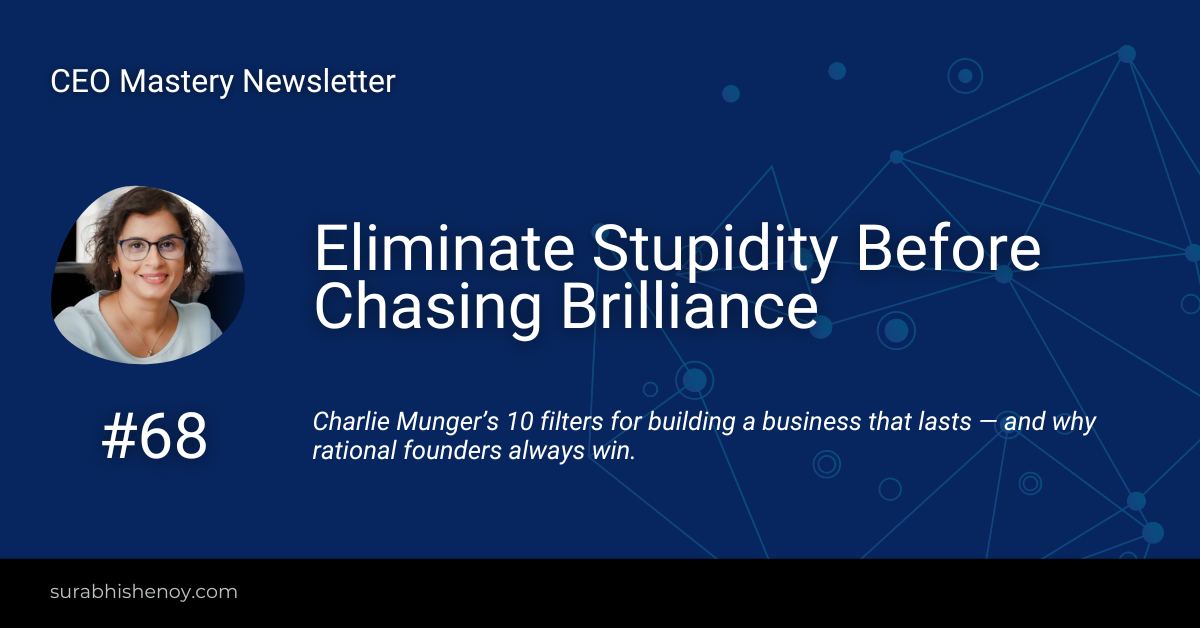This is the 70th edition of CEO Mastery.
When I sent the first one, I didn’t imagine it would turn into a weekly ritual — a space where founders, CXOs, and leaders come together to think clearly about growth.
Seventy editions later, one thing feels certain: the lessons that last aren’t just about business. They’re about people. Leadership. It’s the quiet, personal work that makes everything else possible.
So today, I’m celebrating this milestone with you by revisiting the seven most-read editions of CEO Mastery.
Each one carries a timeless idea — from identifying growth bottlenecks to building models that multiply value without multiplying effort.
Let’s dive in.
1. Design your company to run without you.
Newsletter: My acquirer slashed my post-sale commitment from 12 months to 30 days. Here’s why.
Most founders build companies that depend on them for every key decision.
It feels safe until it becomes the ceiling.
When your business can’t move without your approval, growth slows, teams hesitate, and buyers back off.
What drives value isn’t control — it’s transferability.
This edition shares why this matters to you now, even when you are not selling. And how to build a high-value, founder-free business.
2. Step in without micromanaging.
Newsletter: How to Micromanage (And Not Be That Boss)
Micromanagement isn’t always about control. Sometimes it’s about fear of things breaking. But when founders pull every lever, they shrink their team’s confidence and capacity.
True leadership means creating clarity for your team.
Step in early to set expectations, then step back to let ownership grow. This edition shares my 4T Framework for Strategic Micromanagement.
Great founders know when to zoom in for alignment and when to zoom out for trust.
That rhythm, not distance, is what scales a team.
3. Range beats specialization.
Newsletter: 7 Must-Have Skills for Tech Founders
Technical skill may build your product, but range builds your company.
As businesses grow, the founder’s job shifts: from solving problems to shaping possibilities.
The best founders don’t cling to one skill. They stack them. They can sell a vision, decode a balance sheet, inspire a team, and hold a long-term strategy in their head, all in the same week.
4. Grow fast, but grow wise.
Newsletter: Rapid & Responsible Growth
Speed feels like progress, until it isn’t.
Many companies race ahead on instinct, not insight, mistaking motion for momentum.
The best founders know growth isn’t a sprint; it’s a rhythm. They scale in sync with their systems, people, and processes… fast enough to lead, steady enough to last.
In this edition, I share 5 essentials you need for scaling at 20-40% speed.
Sustainable growth compounds. It preserves energy, builds credibility, and creates companies investors admire and teams want to stay with.
5. Don’t scale the work. Scale the model.
Newsletter: Don’t Scale Your Business, Scale Your Business Model
Adding people without changing how you work doesn’t create scale. It creates chaos. Hiring more only helps when the model itself compounds.
Founders who scale well don’t just expand operations; they reengineer how value is created and delivered.
In this edition, I share how to multiply profits without multiplying headaches or headcount.
Scaling isn’t about doing more work. It’s about designing smarter loops — where every client, project, or product feeds the next.
6. Build momentum, not motivation.
Newsletter: The Flywheel Effect: The hidden force accelerating your business growth
Motivation gets you started. Momentum keeps you going. Motivation depends on emotion; momentum depends on design.
When every part of your business — marketing, delivery, hiring, systems — reinforces the others, you stop pushing uphill. Progress starts pulling you forward.
That’s the magic of the flywheel: small, consistent actions that turn effort into effortless acceleration. Learn how to design yours in this edition.
7. Redesign the game you’re playing.
Newsletter: Beyond Barbie & Big Mac
The most disruptive founders don’t play harder, they play differently. They question every assumption about what their business is and what customers truly value.
When Mattel turned Barbie into a cultural movement, or McDonald’s turned burgers into real estate, they changed the rules.
Their competitors never stood a chance because they were still playing the old game.
The biggest growth leaps don’t come from better execution, they come from better framing.
When you redefine how value flows, you stop competing. You start leading.
The process of curating these seven editions reminded me why I started the CEO Mastery newsletter: to help founders think better, build smarter, and lead with calm confidence.
Every edition you’ve read, shared, or replied to has made this journey richer.
Thank you for being part of it.
A Gift to Celebrate #70
To mark this milestone, I’ve put together something special:
“Read To Lead: 30 Books Every Founder Must Read.”
It’s a curated list of books that shaped how I build, scale, and coach.
Each one expands how you think about leadership, systems, and long-term growth.
Sign up to CEO Mastery to get it.

Here’s to the next 70 editions, and to building businesses that grow in value, and leaders who grow in wisdom.
To your mastery,
Surabhi
My Recent Top Post
Every founder knows what hitting a wall feels like.
But most assume it’s a sign of failure.
Earlier this week I wrote about a truth I see too often in coaching calls: it’s not failure, it’s a phase shift.
You’re playing the right game, just with the wrong rules.




